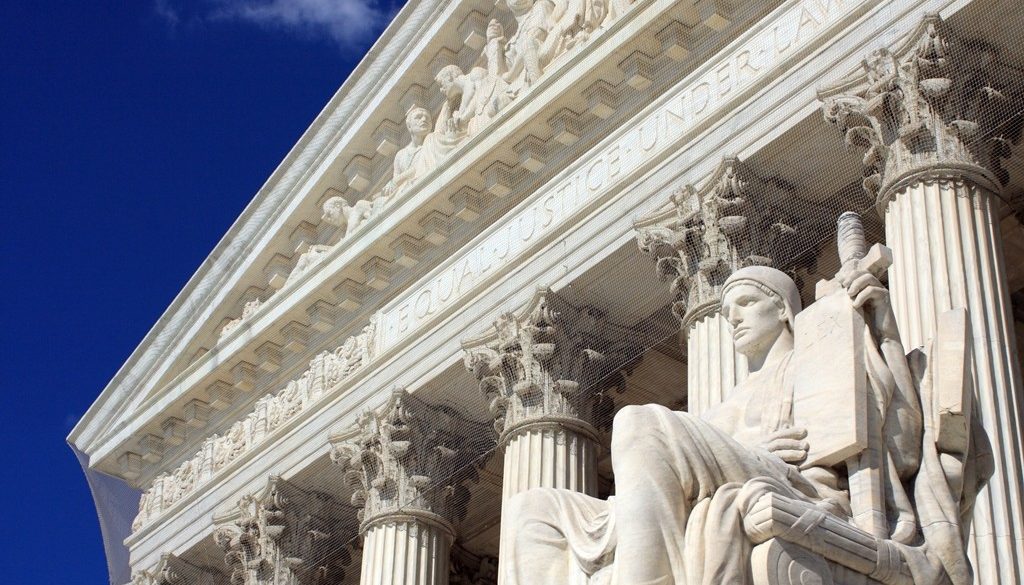With Kavanaugh Confirmed to the Supreme Court, Our Environment and Health Are at Risk
By the Natural Resources Defense Council
After weeks of high-profile questioning before the Senate Judiciary Committee, intense public backlash, a last-minute FBI investigation into allegations of sexual assault, and a shockingly blatant display of partisanship by the Supreme Court justice nominee, the Senate voted 50 to 48 on Saturday to confirm Brett Kavanaugh to America’s highest court. Kavanaugh will replace Justice Anthony Kennedy.
“This is a sad day for the country,” says Rhea Suh, president of NRDC. “The bare knuckles tactics used to ram this nomination through the Senate are a far cry from the advice and consent role the founders envisioned. We look to the Senate to uphold public confidence in the integrity of the high court. Instead, that confidence has been shaken by a judge whose own comportment raised lasting questions about his temperament and ability to render the kind of impartial, constitutionally rooted decisions upon which the credibility of the court depends.”
In his 12 years on the federal bench, Kavanaugh routinely ruled in favor of industry—challenging citizen access to the courts and undermining the authority of federal agencies to enforce environmental and health protections. During the confirmation process, he made misleading claims by overstating his record of ruling in favor of the environment, including one case in which NRDC was involved.
The critical role of the judicial branch in mitigating the Trump administration’s attacks on the environment and health is evident in NRDC’s recent litigation. NRDC is nearing 70 legal challenges to the administration—nearly one every nine days since the inauguration. Of those, 25 have been resolved, with 21 in NRDC’s favor—helping to uphold bedrock environmental and public health laws like the Clean Air Act, the Clean Water Act, and the Endangered Species Act.
Once Kavanaugh formally begins his lifelong appointment, he will cast pivotal votes in cases that will define environmental and public health policy for years to come. “We will live with the consequences, likely for decades,” Suh says.
“During the Trump regime, the courts have been a bulwark against the lawless, autocratic dismantling of decades’ worth of environmental and public health protections,” said Mitchell Bernard, chief counsel for NRDC. “To play this essential role, courts must maintain both the reality and the appearance of objectivity, of not having a political (or any other) ax to grind. This is fundamental to their authority and what differentiates the judiciary from its co-equal branches of government.”
A confirmation process that began with questions over Kavanaugh’s judicial record—including his history of voting in favor of industry polluters—and the withholding of documents from his time in the White House soon became defined by the testimony of Christine Blasey Ford, who detailed during a public hearing her alleged account of sexual assault by Kavanaugh. Kavanaugh’s partisan and uncivil rebuttal then became the subject of widespread concerns over whether he had the right temperament and impartiality to serve on the nation’s highest court. “The substance of his defense, and the manner in which he delivered it, stripped bare the raw political nature of the nomination and the Senate’s deliberation, blurred the distinction between the judiciary and the elected branches of government, and undermined public confidence in the courts,” said Bernard. Kavanaugh’s partisan testimony was, said Bernard, “shocking for a sitting judge, much less one seeking a seat on the Supreme Court.”
“A country devoted to the pursuit of equity and justice deserves better,” Suh says. “We will continue to rely on our laws and courts to hold polluters to account, and to hold our government to account, to ensure that the laws that protect public health and our environment are faithfully enforced.”

